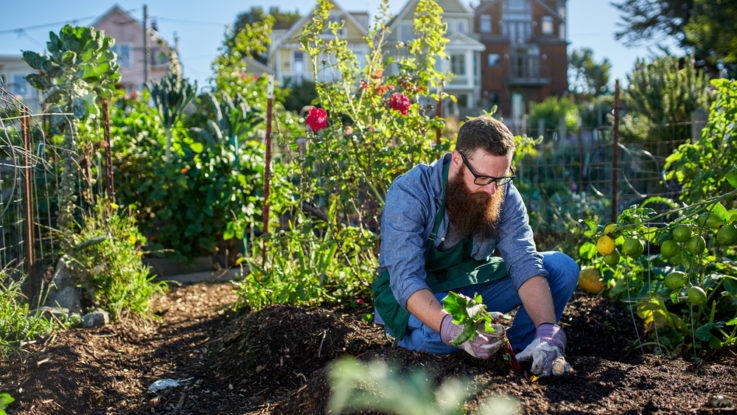
The College of Agricultural Sciences at Pennsylvania State University has received a $100,000 grant from the Pennsylvania Department of Agriculture to develop recommendations and protocols for the testing and management of soils used in urban agriculture. The City of Philadelphia, Penn State Master Gardeners, and Penn State Extension educators will also participate in the research.
“We are working to greatly improve site assessment strategies, a testing protocol that can help lower overall costs of testing, clear guidelines for soil sampling and interpretation of results, and best practices to minimize risk of exposure when working with soils in urban areas,” said team leader Patrick Drohan, professor of soil science. “In addition, we are identifying and evaluating community engagement strategies for greater soil education and knowledge application for working with low income, Black and Indigenous people of color, and other historically marginalized groups.”
Increasingly – across the country – people are using vacant lands to support green infrastructure, aesthetic improvement, community building, and food production. This can be of concern due to the presence of fill from demolition of buildings, or pollutants and other chemicals that can harm human health.
“We need to let people know whether growing food in abandoned lots is safe and teach them how to do assessments that consider the historical characterization of what was there prior,” Drohan said. “That way, they’re better informed about the appropriateness of what the soil can be used for today.”
Having accurate and effective testing and site analysis will help to avoid problems with legacy contaminants. It should also avoid unnecessary costs in land clean-up.
“It doesn’t make sense to reclaim some tracts because the cost of clean-up would be prohibitive,” Drohan said. “Now having said that, most urban areas are not a problem. In most cities, most sites and most soils are not so contaminated that cannot be utilized for growing gardens or to support urban agriculture operations.”